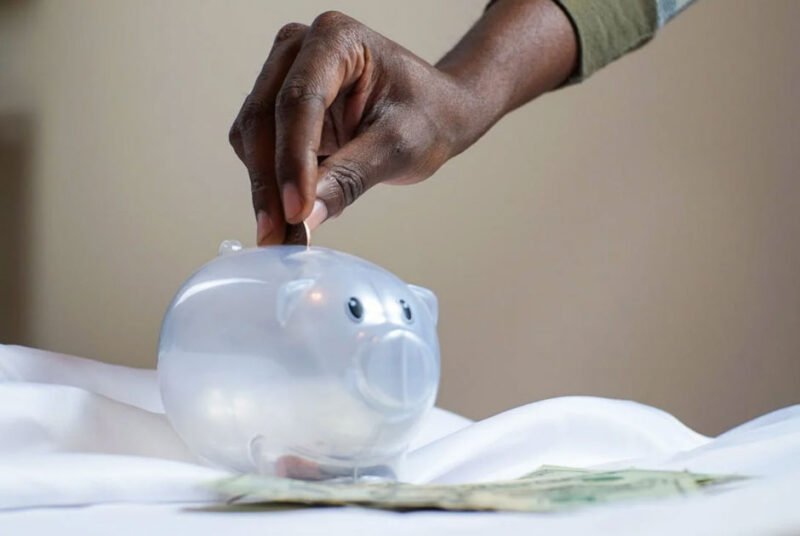Getting better with money doesn’t have to mean huge sacrifices or complex systems. Sometimes, it’s the small daily choices that shape how far you go. These tiny habits — the ones you barely notice — can make the biggest difference over time.
You don’t need to be a financial expert or earn six figures to build good money habits. It starts with awareness and a little consistency. Simple actions like tracking what you spend, checking your account, or skipping a small expense all add up.
The goal isn’t perfection. It’s progress. If you want to feel more confident about your finances, you can start with a few quick changes in your routine. These small shifts can move you closer to better savings, less stress, and more control — all without turning your life upside down.
Start With a Clear Saving Habit
A strong saving habit can create real change. You don’t need to save hundreds at once. What matters is building the practice of saving something — even if it’s just a few dollars each day or week.
One of the easiest ways to stay consistent is to set up an automatic transfer. Pick an amount you’re comfortable with and schedule it to move into your savings on payday. This way, you don’t have to think about it. Over time, it adds up.
A question that comes up a lot is how much to save a month. The truth is, there’s no single answer that works for everyone. It depends on your income, expenses, and goals. Some people aim for 10% of their income. Others start with a fixed number like $100 or even $25 if money is tight. The key is to choose a number that fits your current situation and adjust it as things change.
If you’re new to saving, try rounding up your daily purchases and putting the extra aside. It’s a low-pressure way to start saving more without changing too much.
Track Your Spending Without Overthinking It
Many people struggle with where their money goes. One way to get ahead of that is to write things down. A notes app on your phone, a small notebook, or a basic spreadsheet will do the job.
Start by tracking just three things: what you spend daily, any recurring subscriptions, and the times you buy something on impulse. This kind of tracking isn’t meant to make you feel bad — it’s meant to help you notice patterns.
When you see how often small costs pop up, it becomes easier to make different choices. Maybe that $5 coffee turns into a once-a-week treat instead of a daily habit. Or maybe you cancel a subscription you don’t use.
Knowing where your money goes is the first step toward keeping more of it. You can’t fix what you can’t see — and tracking makes it clear.
Make Budgeting a Quick Daily Habit
Budgeting doesn’t have to feel like a chore. You don’t need to block out hours or learn a complicated system. A few minutes a day is enough to stay on track.
One simple way to build this habit is to check your bank app each morning or evening. Just a quick glance at your balance and recent transactions can keep you aware of where you stand. It’s like checking your calendar — short and useful.
This daily check-in helps you spot problems early. Maybe you forgot about a charge that just hit your account. Or maybe you’re spending more than you thought in one area. When you see your money more often, you start making smarter decisions without much effort.
Build Daily “No-Spend” Awareness
You don’t have to stop spending altogether, but becoming more aware of when and why you spend is powerful. That’s where “no-spend” days come in.
A no-spend day is simple: you go a full day without buying anything beyond your regular bills or planned groceries. It’s not about being strict. It’s about becoming more mindful.
Start small — one or two no-spend days a week. Try bringing lunch from home instead of ordering out. Skip the late-night scroll through shopping apps. You might be surprised how often spending happens out of habit, not need.
If you track how many no-spend days you have each week, you’ll start to notice patterns. Some days will feel easier. Others may be more tempting. Either way, it builds awareness — and that’s the point.
Focus on One Financial Goal at a Time
It’s easy to get overwhelmed by money goals. You might want to save, pay off debt, plan for travel, and still have some fun. But trying to do everything at once can slow your progress.
Instead, pick one goal and focus on it for the month. That might be putting an extra $100 toward a credit card. Or maybe it’s saving for a birthday trip. Whatever it is, write it down and track it daily.
Each small step moves you closer to the bigger picture. And when you hit one goal, it gives you the momentum to start the next. You’ll feel more in control because your efforts are going in one clear direction.
Learn Something Brief About Money Each Day
Financial knowledge doesn’t have to come from big books or long courses. You can learn something valuable in just a few minutes a day.
Follow one finance podcast, blog, or video series that speaks in simple terms. Look for creators who give quick tips, answer common questions, or explain real-life money situations.
Even five minutes of learning each day can shape how you think about spending, saving, and planning. Over time, you’ll make choices based on knowledge — not guesswork.
Celebrate the Small Wins
Progress deserves to be noticed. When you stick to a budget for a week, skip an impulse buy, or hit a savings goal, take a moment to feel good about it.
You don’t need to celebrate with more spending. Instead, keep a journal of your wins. Share your progress with a friend. Or give yourself a break and do something relaxing at home.
These moments keep you motivated. They remind you that small steps matter and that you’re moving forward — even if it doesn’t feel big right away.
Daily habits shape how your money works for you. The choices you make in small moments can lead to more savings, fewer surprises, and better control over your future. You don’t need to wait for the perfect time to start. Pick one habit. Try it today. And keep going, one day at a time.









